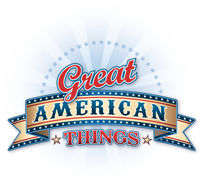Americana: EMS and Rescue
When you need them, they arrive quickly with sirens blaring and lights flashing. In my case, they came because of an auto accident. But they’re ready for other emergencies as well, from chest pains to breathing difficulties, from household accidents to violent assaults.
Some cities and towns have paid squads, others depend on volunteers. Sometimes the two work side-by-side. Either way, you’ll be helped by people who are calm under pressure, who are trained to make critical decisions in life-and-death situations.
If that stress wasn’t enough, EMTs deal with the physical stress of lifting heavy objects or people, working in all weather conditions. They have to be extremely careful to avoid situations that may lead to contracting hepatitis or AIDS. And they can be on call for extended periods with little rest.
I was fortunate that my injuries were very minor. The squad members who evaluated my condition and transported me to the ER were very calm and professional. And because of my preoccupation with my own condition, I didn’t get their names, I didn’t even get to tell them how much I appreciate all they do. So this year, when the squads have their annual fundraising activities, I’m going to make a healthy contribution. It’s the least I can do for the men and women who are willing to put it all on the line for me.
[youtube=http://www.youtube.com/watch?v=9CTiNciIF6Y]



From wiki:
There is some debate as to when the first formal training of “ambulance attendants” began. The generally accepted belief is that this occurred in the United States, at Roanoke, Virginia, with the Roanoke Life Saving and First Aid Crew, under Julian Stanley Wise, in 1928.